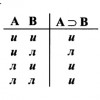A series of discussions concerned basic views, key arguments and the most striking thought experiments in philosophy if mind – a mutual project of Moscow Center for Consciousness Studies and PostNauka.
What is it like to be a philosophical zombie? What do Mary and John Searl do in their rooms? What will happen if a teleport breaks? Philosophers, psychologists and biologists review the central problems of philosophy of mind, surveying basic views, key arguments and the most striking thought experiments concerned the main questions in this field in the series of discussions about philosophy of mind – a mutual project of Moscow Center for Consciousness Studies and PostNauka.
1. Luck argument
2. Zombie argument
3. Chinese room
4. Free will and Determinism
5. Teleport
6. Mary the scientist
↑ 1. Luck argument
It’s a widespread belief that necessary condition of free will is indeterminism. But it can turn out that indeterminism raises difficulties for free will. Luck argument reveals these difficulties. Philosopher Artem Besedin and neuroscientist Vasily Klucharev discussed the issue.
↑ 2. Zombie argument
Zombie in Philosophy is identical to us being in all respects expect consciousness, it is totally unconscious. The possibility of zombie implies falsity of physicalism. Dmitry Ivanov and Vladimir Spiridonov discussed the issue.
↑ 3. Chinese room
The most famous and discussed thought experiment devoted to the possibility of artificial intelligence. Dmitry Volkov and Maria Falikman discussed that thought experiment.
↑ 4. Free will and Determinism
In some sense meaning of life is based on free will. It’s a belief that we act freely not as physical entities. But is free will possible when determinism is true? Dmitry Volkov and Kirill Martynov discussed the details of that problem.
↑ 5. Teleport
If you were destroyed into particles and perfectly reconstructed in another place, would it still be you? This is a case of teleportation. What exactly makes you you? Where does personality live? What provides the continuity of your personality through the time? Natalia Kiselnikova and Maria Sekatskaya discussed the issue of personal identity.
↑ 6. Mary the scientist
If we knew everything about how the brain works, would we knew everything about consciousness? Philosopher Dmitry Ivanov and psychophysiologist Alexander Kaplan discussed the issue.

The fourth part of the issues of the author's program "Object 22" by Yevgeny Stakhovsky on the radio Mayak on the history of philosophy with the participation of domestic specialists, dedicated to the period of modern philosophy

A series of discussions concerned basic views, key arguments and the most striking thought experiments in philosophy if mind – a mutual project of Moscow Center for Consciousness Studies and PostNauka.

Series of mini-lectures about the history of Russian Philosophy presented by PostNauka: from its origin in Ancient Rus’ to the doctrines of the XX-th century. The lecturer is Alexey Kozyrev, one of the greatest Russian authorities in this field.

Series of mini-lectures about the philosophy of mind, prepared by The Moscow Center for Consciousness Studies. Each lecture is devoted to some important issue or to a particular person from that area.

Series of mini-lectures presented by Philoso F.A.Q.: discussions about logic and theory of argumentation with Dmitry Zaitsev, Ivan Mikirtumov, and David Khizanishvili.

Series of lectures about the central philosophers of German idealism: F.W.J. Schelling, G.W.F. Hegel and J.G. Fichte. The lecturer is Petr Rezvykh, the brilliant Russian specialist in this field.
Select it and press Ctrl + Enter

 По-русски
По-русски